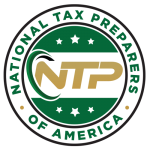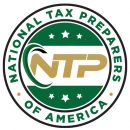Tax payers perform the tactical task of filing tax returns every year. Any discrepancy found in the taxes calls for a tax audit. If it is found wilful, the discrepancy is termed as a tax fraud, the consequences of which can be life destroying.
Tax fraud is a deliberate attempt to evade taxes or to defraud the IRS. Tax fraud includes:
* False exemptions or deductions * Kickbacks * A false or altered document * Failure to pay tax * Unreported income * Organized crime * Failure to withhold * Failure to follow the tax laws
How Does the IRS Determine Tax Fraud?
The IRS defines tax fraud as “the willful and material submission of false statements or false documents in connection with an application and/or return.” To make this determination, investigators will look for any indicators of fraud such as, but not limited to:
·Underreporting income
·Using a false Social Security number
·Falsifying documents
·Intentionally failing to pay taxes
If these common indicators are absent, the IRS typically assumes that an unintentional mistake has occurred due to negligence. This might not lead to criminal charges of a tax fraud, but you may be subject to an accuracy related penalty. This penalty is levied on your taxes and can equate up to 20 percent of the underpayment.
It’s also important to remember your right to an attorney as well, especially if you believe a tax fraud charge has been levied against you in error. These attorneys, or Tax fraud lawyers, help you build up a case to prove your innocence against the IRS.
Tax Fraud Punishment
Although the penalties for tax negligence may seem severe, those that apply in cases of a tax fraud conviction are even more severe. A failure to file can come with up to one-year imprisonment and a monetary penalty of $100,000, while an attempt to evade taxes can come with up to five-years imprisonment and a $250,000 fine.
How To Inform IRS about a Tax Fraud
If you have any information about a committed tax fraud, you may send a letter to the IRS or use Form 3949-A. Include as much information as possible in your letter, including:
* The name and address of the person or business you’re reporting * The individual’s Social Security number or the business’ Employer Identification Number * A brief description of the tax fraud you are reporting, including how you became aware or obtained the information * The years of the suspected tax fraud * The estimated dollar amount of any unreported income * Your name, address and telephone number(You are not required to identify yourself, but this information is helpful to us.
To claim a reward for information about tax fraud, use _Form 211, Application for Award for Original Information _.The IRS is /required /*to issue an award to tax whistleblowers of 15% to 30%* of proceeds collected from tax fraud or tax underpayments.
The above mentioned consequences of tax fraud by will or by sheer negligence, are life altering. Hence utmost care and precision is necessary. This can be professionally provided by the tax experts at the National Tax Preparers of America (NTPA) to ensure accurate tax returns.




